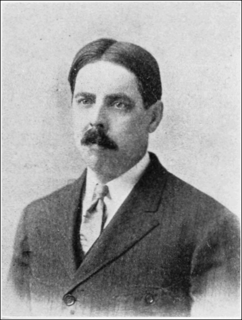A Quote by Aldo Leopold
One of the anomalies of modern ecology is the creation of two groups, each of which seems barely aware of the existence of the other. The one studies the human community, almost as if it were a separate entity, and calls its findings sociology, economics and history. The other studies the plant and animal community and comfortably relegates the hodge-podge of politics to the liberal arts. The inevitable fusion of these two lines of thought will, perhaps, constitute the outstanding advance of this century.
Quote Topics
Advance
Almost
Animal
Anomalies
Arts
Aware
Barely
Calls
Century
Comfortably
Community
Constitute
Creation
Each
Ecology
Economics
Entity
Existence
Findings
Fusion
Groups
History
Human
Inevitable
Liberal
Liberal Arts
Lines
Modern
Other
Outstanding
Perhaps
Plant
Politics
Seems
Separate
Sociology
Studies
Thought
Two
Were
Which
Will
Related Quotes
General editors' preface The growth of translation studies as a separate discipline is a success story of the 1980s. The subject has developed in many parts of the world and is clearly destined to continue developing well into the twenty-first century. Translation studies brings together work in a wide variety of fields, including linguistics, literary study, history, anthropology, psychology, and economics. This series of books will reflect the breadth of work in translation studies and will enable readers to share in the exciting new developments that are taking place at the present time.
At the heart of my politics has always been the value of community, the belief that we are not merely individuals struggling in isolation from each other, but members of a community who depend on each other, who benefit from each other's help, who owe obligations to each other. From that everything stems: solidarity, social justice, equality, freedom.
Only within the 20th Century has biological thought been focused on ecology, or the relation of the living creature to its environment. Awareness of ecological relationships is - or should be - the basis of modern conservation programs, for it is useless to attempt to preserve a living species unless the kind of land or water it requires is also preserved. So delicately interwoven are the relationships that when we disturb one thread of the community fabric we alter it all - perhaps almost imperceptibly, perhaps so drastically that destruction follows.
The lives of individuals of the human race form a constant plot, in which every attempt to isolate one piece of living that has a meaning separate from the rest-for example, the meeting of two people, which will become decisive for both-must bear in mind that each of the two brings with himself a texture of events, environments, other people, and that from the meeting, in turn, other stories will be derived which will break off from their common story.
When I started meeting members of the hijra community, it was a whole different ballgame. They were like me. This was the first time I felt that I was with other people who were the same as me. It was not about cruising a man, it was not about sleeping with somebody - it was beyond that. It was so much a community, wanting the best for each other, loving each other, caring for each other.
With the defeat of the Reich and pending the emergence of the Asiatic, the African and, perhaps, the South American nationalisms, there will remain in the world only two Great Powers capable of confronting each other-the United States and Soviet Russia. The laws of both history and geography will compel these two Powers to a trial of strength, either military or in the fields of economics and ideology. (2nd April 1945)
There are two instances I studied in which a community moved, amazingly, into an preexisting village built by other, earlier communalists. The Rappites were a German millenarian sect I mostly leave out of the story, even though they are fascinating, because they're focused on salvation and retreating from the world, as opposed to transforming it, like the other groups I write about.







































